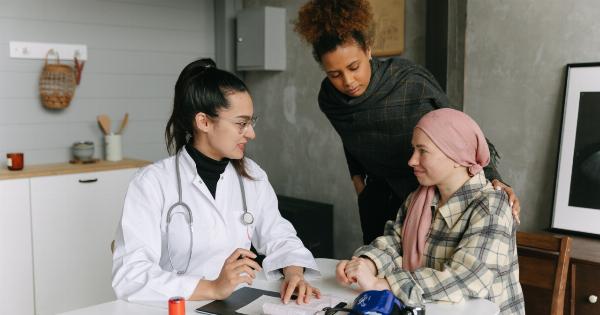Cancer is a dreadful disease that affects millions of people around the world. It is characterized by abnormal cell growth, which can invade and spread to other parts of the body.
Cancer impacts not only the patients but also their families, friends, and communities. In this article, we will share our experiences with cancer and how it has affected our lives.
Diagnosis Journey
Receiving a cancer diagnosis is a life-altering moment. The journey begins with various tests, scans, and biopsies to confirm the presence of cancer cells. These diagnostic procedures can be physically and emotionally exhausting.
The waiting period for results creates anxiety and fear, leaving patients and their loved ones in a state of uncertainty.
Treatment Options and Decision-making
Once diagnosed, patients are presented with different treatment options depending on the type and stage of cancer.
Treatment plans may include surgery, chemotherapy, radiation therapy, targeted therapies, immunotherapy, or a combination of these approaches. Making decisions about treatment can be overwhelming for both patients and their families. They must consider the potential side effects, the effectiveness of each treatment, and their overall quality of life.
Physical and Emotional Impact
Cancer and its treatments have significant physical and emotional impacts on patients. Side effects such as fatigue, pain, nausea, hair loss, and weight changes can take a toll on the body.
Patients often experience a range of emotions, including fear, anger, sadness, and depression. The physical and emotional strain can affect their ability to carry out daily activities and maintain personal relationships.
Support Systems
Having a strong support system is crucial for cancer patients. Family, friends, and support groups play a vital role in providing emotional support, assisting with daily chores, and offering a listening ear.
Sharing experiences with others who have gone through similar journeys can provide a sense of comfort and understanding.
Impact on Relationships
Cancer can deeply impact relationships with family members, friends, and romantic partners. Loved ones may experience feelings of helplessness, guilt, and fear of losing their loved one.
Relationships can strain due to the demands of treatment, financial burdens, and emotional stress. Effective communication and empathy are essential to navigate these challenges and maintain strong bonds.
Cancer Survivors
Surviving cancer is a huge milestone, but it often comes with its own set of challenges. Cancer survivors may face long-term physical effects, such as chronic pain, fatigue, and organ damage.
They may also encounter emotional hurdles, including fear of recurrence, survivor’s guilt, and difficulties adjusting to life after treatment. Support from healthcare professionals and fellow survivors is vital during this phase.
Cancer Research and Advancements
Over the years, significant advancements have been made in cancer research. Researchers continuously strive to understand the disease better, develop more targeted treatments, and improve overall outcomes.
Clinical trials offer hope for patients by providing access to cutting-edge treatments not yet available to the wider population. Cancer research fuels optimism for the future, as scientists work towards finding a cure.
Importance of Early Detection
Early detection plays a crucial role in cancer management. Regular screenings and check-ups can detect cancer in its early stages when treatment outcomes are generally more successful.
Public awareness campaigns, education programs, and improved access to healthcare services are essential for promoting early detection and raising cancer awareness.
The Power of Supportive Care
Supportive care, also known as palliative care, focuses on improving the quality of life for patients during and after cancer treatment. This interdisciplinary approach addresses physical, emotional, and psychosocial needs.
Supportive care teams work alongside the primary oncology team to manage symptoms, offer psychological support, and enhance overall well-being.
Conclusion
Cancer is a formidable foe, impacting the lives of millions worldwide. It is crucial to share our experiences with cancer to raise awareness, offer support, and foster a sense of community.
By sharing our stories, we can unite in the fight against cancer and work towards a future where this disease no longer takes loved ones away from us.




























